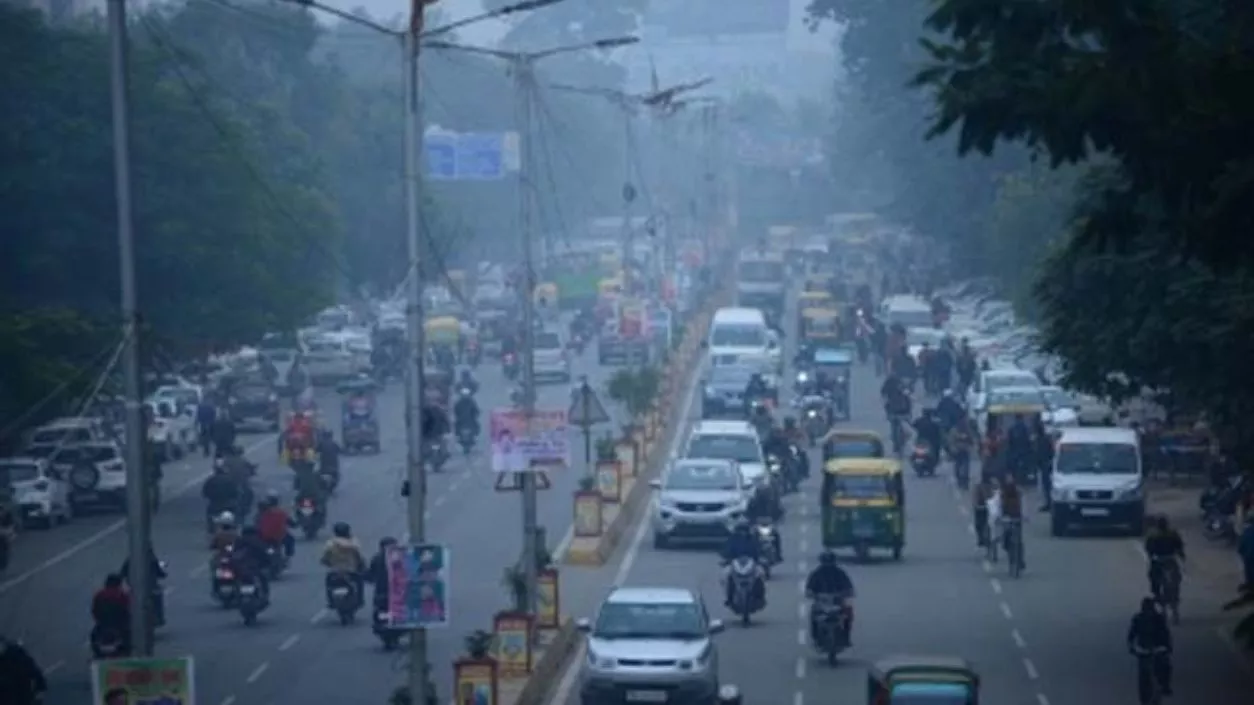.gif)
.gif)

Bihar is currently facing a severe air pollution crisis, with many parts of the state experiencing hazardous air quality levels due to ongoing high temperatures and rising humidity. The Meteorological Department has indicated that temperatures will not drop significantly for the next three to four days, which means the heat will persist and continue to worsen the situation. This is causing an increase in humidity, which has led to higher levels of dust and particulate matter in the air. Consequently, air quality in several regions, particularly urban areas, has deteriorated significantly.
Patna, the state capital, is witnessing some of the most polluted air in the state. On Sunday, the AQI in Sammanpura, a densely populated locality, reached an alarming level of 341, which falls under the “severe” category according to the AQI scale. This is the highest AQI recorded among the six monitoring stations set up in Patna. Other areas like Muradpur and Shikarpur recorded AQI levels of 178 and 217, respectively, both categorized as “poor.” The air quality in these parts of Patna has raised concerns, as these levels can cause serious health issues, especially for children, the elderly, and individuals with pre-existing respiratory conditions.
The pollution is not limited to Patna. Siwan, located in the western part of Bihar, recorded an AQI of 294, which also falls under the "poor" category. In northern Bihar, cities like Hajipur, Muzaffarpur, and Chhapra saw AQI levels of 209, 207, and 229, respectively, all considered harmful to health. The increasing pollution levels in these regions are contributing to significant discomfort for residents. The primary pollutants responsible for the deteriorating air quality are particulate matter (PM 2.5) and dust, which have been raised by high temperatures and humidity.
The elevated pollution levels have had a direct impact on public health. Doctors report a spike in respiratory issues, including viral fevers, coughs, colds, and other flu-like symptoms. Healthcare professionals have noted that many patients are coming in with complaints of difficulty breathing and chest tightness. According to local health centers, around 150 patients are being treated daily, with a majority of them presenting with viral infections. Doctors have advised people to avoid self-medication and seek proper medical treatment. They emphasize that untreated symptoms may lead to complications, especially in cases of prolonged exposure to polluted air.
Hospitals are reporting a surge in patients with respiratory problems, further stressing the capacity of the healthcare system. The situation has placed an additional burden on hospitals and clinics, which are already dealing with an increased number of viral infection cases. Experts are also warning that the rise in cases of respiratory ailments may continue to grow, particularly as the winter season approaches and the air quality is expected to worsen further.
In response to the growing concerns, environmentalists and health experts are urging the government to take immediate action to combat air pollution. They suggest measures such as controlling industrial emissions, promoting the use of cleaner fuels, and increasing green spaces to improve air quality. With the approaching winter, which often leads to further pollution due to crop burning and weather patterns, experts are worried that the situation could escalate further. They are calling for better pollution control measures and greater public awareness to mitigate the effects of poor air quality.